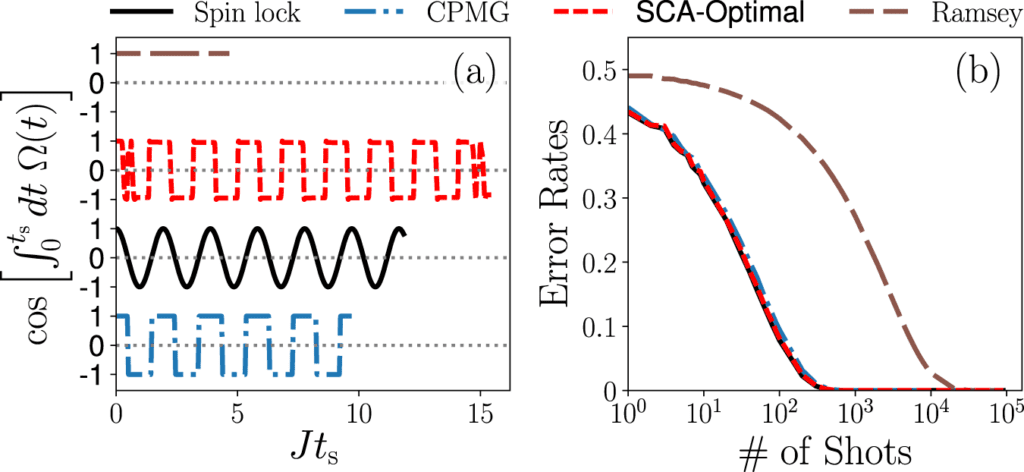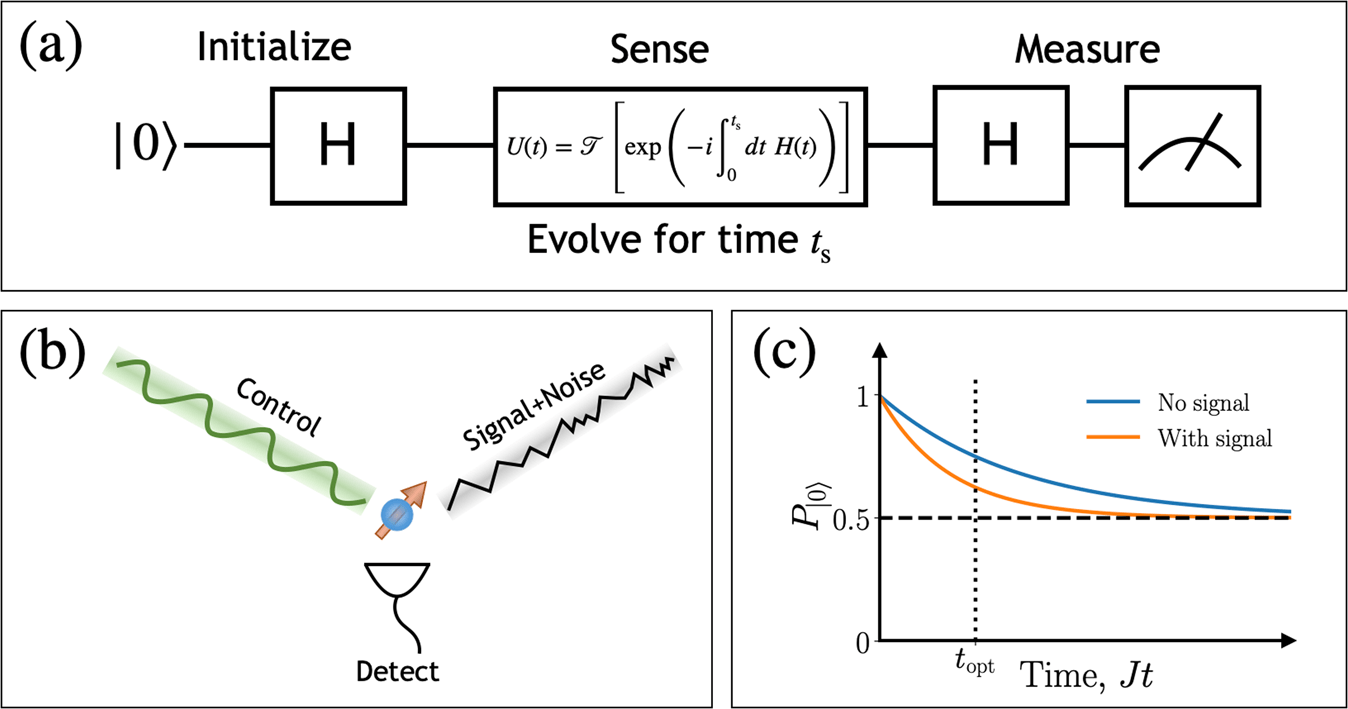Quantum systems are promising candidates for sensing of weak signals as they can be highly sensitive to external perturbations, thus providing excellent performance when estimating parameters of external fields.
However, when trying to detect weak signals that are hidden by background noise, the signal-to-noise ratio is a more relevant metric than raw sensitivity.
A team of researchers has identified, under modest assumptions about the statistical properties of the signal and noise, the optimal quantum control to detect an external signal in the presence of background noise using a quantum sensor.
Interestingly, for white background noise, the optimal solution is the simple and well-known spin-locking control scheme.
Using numerical techniques, they have generalized these results to the case of background noise with a Lorentzian spectrum. They showed that for increasing correlation time, pulse based sequences, such as CPMG, are also close to the optimal control for detecting the signal, with the crossover dependent on the signal frequency.

These results show that an optimal detection scheme can be easily implemented in near-term quantum sensors without the need for complicated pulse shaping.
The paper has been published in npj quantum information.


